Best movies like Chaplin Today: 'The Great Dictator'
A unique, carefully handpicked, selection of the best movies like Chaplin Today: 'The Great Dictator' Starring Charlie Chaplin, Costa-Gavras, and more. If you liked Chaplin Today: 'The Great Dictator' then you may also like: Yellow Caesar, Words for Battle, Why We Fight: The Nazis Strike, Night and Fog, A Night at the Garden and many more popular movies featured on this list. You can further filter the list even more or get a random selection from the list of similar movies, to make your selection even easier.
A short documentary about the making of "The Great Dictator."
You may filter the list of movies on this page for a more refined, personalized selection of movies.
Still not sure what to watch click the recommend buttun below to get a movie recommendation selected from all the movies on this list
Words for Battle
Poetry by Rudyard Kipling, John Milton, and William Blake, and excerpts from speeches by Abraham Lincoln and Winston Churchill, all read by Laurence Olivier, illuminate documentary footage of England during its defense against the Nazi blitz in World War II. This short film serves as both propaganda and as a rallying cry to the British people.
Why We Fight: The Nazis Strike
The second film of Frank Capra's Why We Fight propaganda film series. It introduces Germany as a nation whose aggressive ambitions began in 1863 with Otto von Bismarck and the Nazis as its latest incarnation.
Night and Fog
Filmmaker Alain Resnais documents the atrocities behind the walls of Hitler's concentration camps.
A Night at the Garden
Archival footage of an American Nazi rally that attracted 20,000 people at Madison Square Garden in 1939, shortly before the beginning of World War II.
Night Will Fall
When Allied forces liberated the Nazi concentration camps in 1944-45, their terrible discoveries were recorded by army and newsreel cameramen, revealing for the first time the full horror of what had happened. Making use of British, Soviet and American footage, the Ministry of Information’s Sidney Bernstein (later founder of Granada Television) aimed to create a documentary that would provide lasting, undeniable evidence of the Nazis’ unspeakable crimes. He commissioned a wealth of British talent, including editor Stewart McAllister, writer and future cabinet minister Richard Crossman – and, as treatment advisor, his friend Alfred Hitchcock. Yet, despite initial support from the British and US Governments, the film was shelved, and only now, 70 years on, has it been restored and completed by Imperial War Museums under its original title "German Concentration Camps Factual Survey".
Salò, or the 120 Days of Sodom
Four corrupted fascist libertines round up 9 teenage boys and girls and subject them to 120 days of sadistic physical, mental and sexual torture.
Escape to Athena
During the World War II, the prisoners of a German camp in a Greek island are trying to escape. They not only want their freedom, but also seek an ineffable treasure hidden in a monastery at the summit of the island's mountain.
Dying to Do Letterman
When 35 year old stand-up comedian Steve Mazan learned he was dying of cancer, he dedicated the rest of his life to making his dream come true: performing comedy on The Late Show with David Letterman. This documentary chronicles his five-year journey, as he races his own ticking clock to achieve a nearly impossible goal. Hilarious and heart-breaking, Steve brings a brand-new perspective to living with cancer. This is a story that proves it's not how much time you have, it's what you do with it. As Steve says, 'If you stop chasing your dreams, you're already dead.'
Food Will Win the War
World War II propaganda film on the importance of American farming. A morale booster film stressing the abudance of American agricultural output.
Hitler: The Last Ten Days
Hitler: The Last Ten Days takes us into the depths of der Furher’s Berlin bunker during his final days. Based on the book by Gerhard Boldt, it provides a bleak look at the goings-on within, and without.
Hitler's Reign of Terror
A documentary meant to show Americans what had been going on in Germany since Hitler's rise, centered on a fact finding trip by Cornelius Vanderbilt, with newsreel footage of book burnings and such.
Hôtel Terminus: The Life and Times of Klaus Barbie
Winner of a Best Documentary Academy Award, Marcel Ophuls' riveting film details the heinous legacy of the Gestapo head dubbed "The Butcher of Lyon." Responsible for over 4,000 deaths in occupied France during World War II, Barbie would escape--with U.S. help--to South America in 1951, where he lived until a global manhunt led to his 1983 arrest and subsequent trial.
Hymn of the Nations
Hymn of the Nations, originally titled Arturo Toscanini: Hymn of the Nations, is a 1944 film directed by Alexander Hammid, which features the "Inno delle nazioni," a patriotic work for tenor soloist, chorus, and orchestra, composed by Italian opera composer Giuseppe Verdi in the early 1860s. (For this musical work, Verdi utilized the national anthems of several European nations.) In December 1943, Arturo Toscanini filmed a performance of this music for inclusion in an Office of War Information documentary about the role of Italian-Americans in aiding the Allies during World War II. Toscanini added a bridge passage to include arrangements of "The Star-Spangled Banner" for the United States and "The Internationale" for the Soviet Union and the Italian partisans. Joining Toscanini in the filmed performance in NBC Studio 8-H, were tenor Jan Peerce, the Westminster Choir, and the NBC Symphony Orchestra. The film also included the overture to Verdi's opera La Forza del Destino.
The Last Laugh
Feature documentary about humor and the Holocaust, examining whether it is ever acceptable to use humor in connection with a tragedy of that scale, and the implications for other seemingly off-limits topics in a society that prizes free speech.
Sobibor, October 14, 1943, 4 p.m.
A Claude Lanzmann documentary about one uprising by Jews in a Nazi-run concentration camp taken from his Shoah interviews.
Missile Monsters
A warlord from Mars recruits an Earth industrialist with a Nazi past to manufacture weapons by means of which Mars can take over the Earth. Feature version of the 1951 movie serial "Flying Disc Man from Mars".
The Tramp and the Dictator
A look at the parallel lives of Charlie Chaplin and Adolf Hitler and how they crossed with the creation of the film “The Great Dictator,” released in 1940.
Franco Building with Jonathan Meades
Writer and broadcaster Jonathan Meades turns his gaze onto Spanish dictator Francisco Franco.
Filmmakers for the Prosecution
In 1945, two young American soldiers, brothers Budd and Stuart Schulberg, are commissioned to collect filmed and recorded evidence of the horrors committed by the infamous Third Reich in order to prove Nazi war crimes during the Nuremberg trials (1945-46). The story of the making of Nuremberg: Its Lesson for Today, a paramount historic documentary, released in 1948.
Nazi Titanic
During a bizarre chapter of WWII, Nazi propaganda minister Joseph Goebbels decided to make a movie based on the sinking of the Titanic. This epic film was so large in scale that the Nazis were forced to divert men, material and ships from the war effort in order to complete it. Titanic was filmed aboard cruise ship SS Cap Arcona in the Baltic Sea. The movie’s director Herbert Selpin was arrested by the Gestapo over comments he made about the ship’s crew and he was questioned by Goebbels. Selpin was found dead the next day in his cell. The Gestapo’s verdict was suicide. Titanic never received the impressive premiere that Goebbels intended, being first shown in Nazi-occupied Paris in 1943. We reveal this little known but fascinating story by looking at the making of the film, as well as the fate of the German ship Cap Arcona.
Staline: Le tyran rouge
French television documentary film by Mathieu Schwartz, Serge de Sampigny, Yvan Demeulandre and the historic consultant Nicolas Werth about the government of Joseph Stalin in the Soviet Union.
Fascism and Football
Documentary examining how the three most powerful fascist dictators of the 20th Century - Mussolini, Hitler and Franco - used football's popular appeal as vehicle of propaganda. Rare archive footage, combined with evidence from historians and contributions from former stars of the game, is used to expose the cases of corruption, sabotage, intimidation and even alleged murder that affected the lives of supporters and many high-profile players alike.
The Eagle and the Lion: Hitler vs Churchill
Winston Churchill, one of the most revered men of the twentieth century. Adolf Hitler, one of the most hated leaders in contemporary history. Between 1940 and 1945, these two enormously contradictory personalities faced each other in both politics and war. A clash of giants whose story begins in the trenches of the World War I and ends with the debacle of the World War II.
Convoy of Girls
Eric, a brilliant young German officer, is transfered back to Berlin.His superior officer tells him about his new assignment on the Russian front and then invites him to a luxurious villa. Gathered in the mansion are the most beautiful women: the army's special services could enroll for the pleasure of its returning heroes.Eric is stupefied to recognize Renata among the women, who are all ready and willing to make love with any officer present. Not many years ago, while still students, Renata and Eric had been very much in love. After making love in a room put at their disposal, Renata tells him that she had no choice but to accept joining the army as an official camp follower: her father's survival depended on it. The following morning, Renata leaves in a special women's convoy for Eastern frontwhere they are scheduled to entertain hard-pressed officers and men. Will Eric and Renata's love survive those adventures?
Occupied City
A door-to-door excavation of the Nazi occupation that still haunts Amsterdam, and a journey through the last years of pandemic and protest.
Pure Imagination: The Story of 'Willy Wonka & the Chocolate Factory'
Retrospective documentary on the making of the cult classic "Willy Wonka & the Chocolate Factory."
Prelude to War
Prelude to War was the first film of Frank Capra's Why We Fight propaganda film series, commissioned by the Pentagon and George C. Marshall. It was made to convince American troops of the necessity of combating the Axis Powers during World War II. This film examines the differences between democratic and fascist states.
Why We Fight: The Battle of Russia
The fifth film of Frank Capra's Why We Fight propaganda film series, revealing the nature and process of the fight between the Soviet Union and Germany in the Second World War.





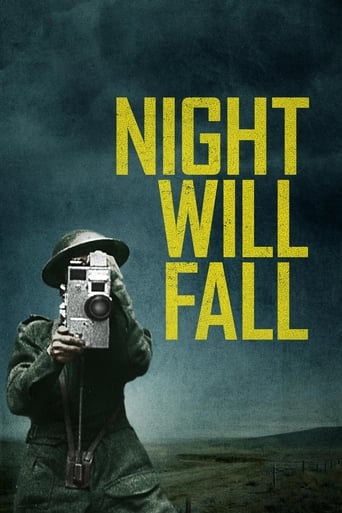



























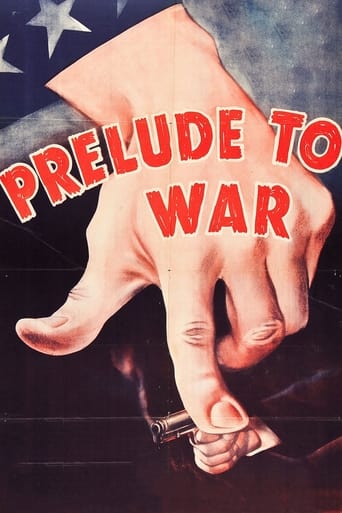
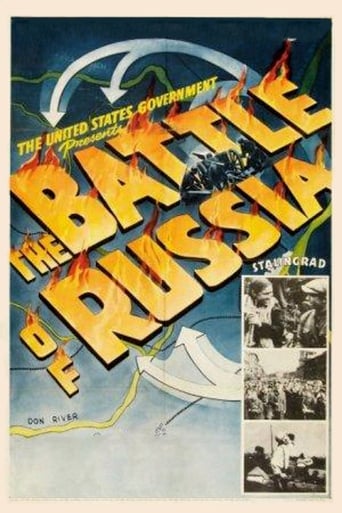

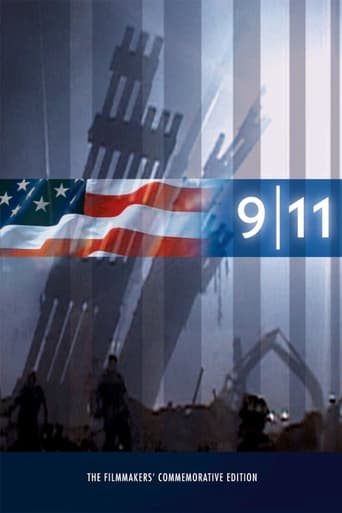

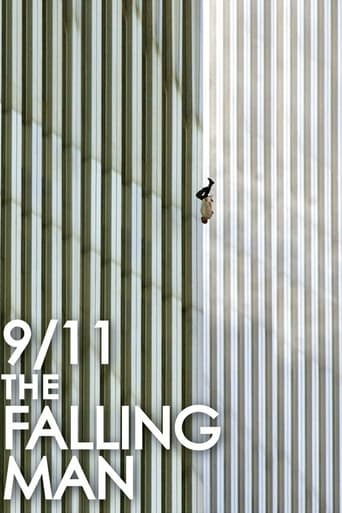
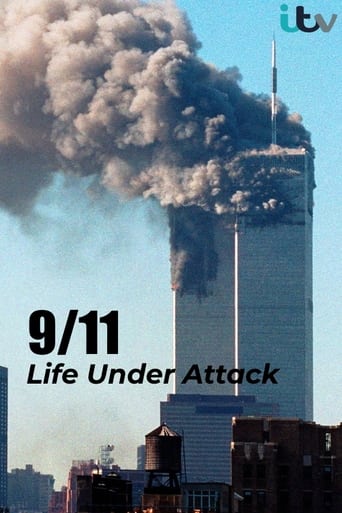
Yellow Caesar
Using edited archive footage, mockery is made of Italy's dictator Benito Mussolini.